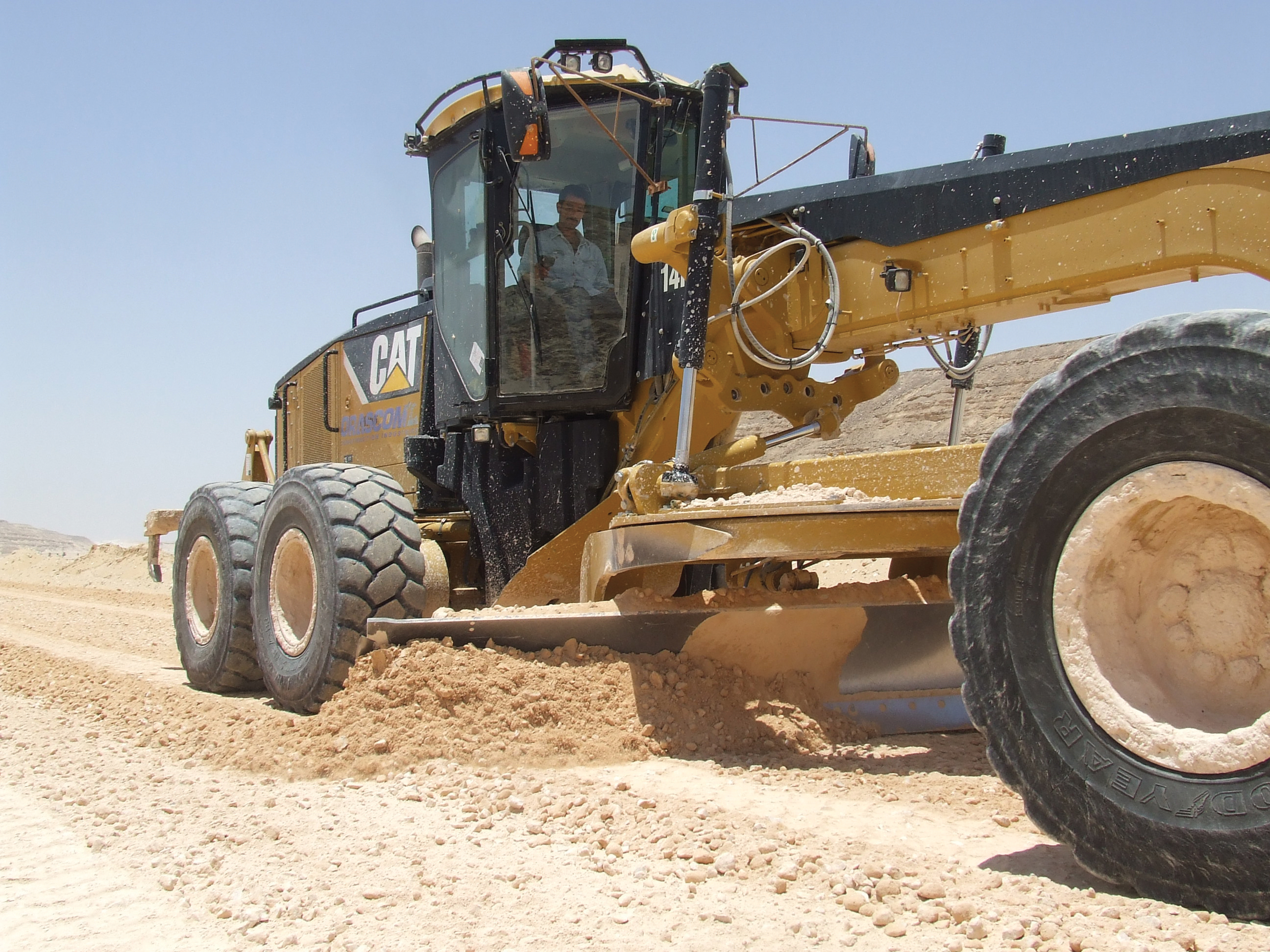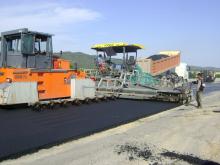North Africa is seeing construction business return - Mike Woof reports After a troubled period, stability looks to be returning to North African nations, which can only be good for the road construction sector. First Tunisia, then Egypt and finally Libya saw tumultuous revolts against the previous autocratic (and in one case at least, despotic) rulers. All three nations are now benefiting from a return to stability, with economic growth also improving once more.

New desert highways close to the city of Assuit improve transport connections in southern Eqypt
North Africa is seeing construction business return - Mike Woof reports
After a troubled period, stability looks to be returning to North African nations, which can only be good for the road construction sector. First Tunisia, then Egypt and finally Libya saw tumultuous revolts against the previous autocratic (and in one case at least, despotic) rulers. All three nations are now benefiting from a return to stability, with economic growth also improving once more. And for the road construction sector, this is a key development as all three countries require extensive highway development.Stretching some 5,600km right across North Africa, a new tolled highway link will improve transport connections between these three countries, as well as Algeria and Morocco. The Algerian section of the highway, the East-West link, is more or less complete, but work in Egypt and Tunisia will continue for some time, while upgrading of Libya’s highway sections has yet to commence in earnest.
In Egypt, the Transportation Ministry is working on plans for the country’s Mediterranean Coastal Highway between Marsa Matrouh and Port Said. This is one of several major highway projects now in hand, with the Egyptian Transportation Ministry also setting out plans for the US$331 million Shoubra-Banha highway project. This 40km stretch of highway will carry 125,000 vehicles/day andis expected to take 18 months to complete. Meanwhile, work is also underway on the final portions of Egypt’s key Cairo-Alexandria highway upgrade as well as the Kafr El Zayat-Alexandria highway project. The Cairo-Alexandria route will feature a central highway with three lanes in either direction for cars and buses along most of its length, as well as dual lane service roads on either side for local traffic as well as heavy vehicles. And improving highway connections to and from the port of Alexandria will be crucial for Egypt’s trade, as well as that of its neighbours.
Tunisia’s works ministry recently opened the tender process for construction of the 180km highway linking Gabès, Médenine and Ras Jedir. Work is expected to last three years and will create 2,000 jobs. The project, which will be completed at the beginning of 2017, is expected to cost over $631 million in total. The Gabès-Médenine stretch is expected to cost $347 million and will be financed by the Tunisian State and the Japanese International Cooperation Agency. The Médenine-Ras Jedir link is expected to cost $284 million and will be financed by the
Algeria has other highway projects planned, with the East-West route being the first of a planned grid network across the country. Plans are in hand for a tolled southern highway running from East-West, as well as new tolled highways running North-South.
Meanwhile in Morocco, work on enlarging the urban motorway in Casablanca has begun and will last until the end of June 2014. The project involves tripling the lanes in both directions across a 20.5km stretch between the Ain Harrouda interchanges and the head office of Moroccan phosphates producer OCP and is costing around $56 million. The work includes improving lighting, drainage and road signs along the route. Casablanca’s urban highway carries some 120,000 vehicles/day. The work is being headed by Spanish firm Copisa, with the highway remaining open to traffic during the widening programme.
Of course, it remains to be seen how long it will be before highway work can restart in earnest in Libya. With the ruinous rule of the former military dictatorship now a memory, Libya hopefully has a somewhat brighter future ahead. Infrastructure rebuilding and development will form a part of the country’s future economic advancement, with road and highway construction amongst the priorities. But contracts will need to be awarded before the work can start.





